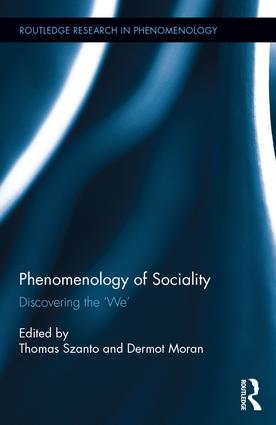 The Phenomenology of Sociality: Discovering the 'We'
The Phenomenology of Sociality: Discovering the 'We'
Routledge Research in Phenomenology
Routledge
2016
337
University of Copenhagen
 The Phenomenology of Sociality: Discovering the 'We'
The Phenomenology of Sociality: Discovering the 'We'
![Photo: © Thomas Szanto Photo1-150x150[1]](http://cfs.ophen.org/wp-content/uploads/sites/23/2016/07/Photo1-150x1501.jpg) Week after week, we are bombarded with news about nationalist elections (e.g., Austria, Denmark, Hungary, Poland), total political insulation and outright racist rhetoric in electorate campaigns (Brexit, Trump, etc.), destroyed Roma camps and deported immigrants (Italy, France, Slovakia, etc.), not to mention homophobic, political, ethnic or religiously inspired terrorism (Orlando, Istanbul, Middle East, etc.).
Week after week, we are bombarded with news about nationalist elections (e.g., Austria, Denmark, Hungary, Poland), total political insulation and outright racist rhetoric in electorate campaigns (Brexit, Trump, etc.), destroyed Roma camps and deported immigrants (Italy, France, Slovakia, etc.), not to mention homophobic, political, ethnic or religiously inspired terrorism (Orlando, Istanbul, Middle East, etc.).
Read moreThomas Szanto / Time to be Proud of Us – Time to Hate Them
 Jean Paul Sartre considered phenomenology as that kind of philosophy that had ‘restored to things their horror and charm.’ This is supposed to mean that things in the world are indeed significant to us – but also that such significance is not simply projected onto them by our minds or our brains. Rather, significance is something we are to find in the things themselves. Of course, this does not preclude that all the background knowledge, attitudes and projects we have actually play an important role. For instance, my strict adherence to certain preconceptions may result in my inability to get any other aspects out of a given state of affairs, though those aspects nevertheless exist. In this case, I may give reality hardly any chance to surprise me. This is precisely what Sartre’s overall philosophical project opposes.
Jean Paul Sartre considered phenomenology as that kind of philosophy that had ‘restored to things their horror and charm.’ This is supposed to mean that things in the world are indeed significant to us – but also that such significance is not simply projected onto them by our minds or our brains. Rather, significance is something we are to find in the things themselves. Of course, this does not preclude that all the background knowledge, attitudes and projects we have actually play an important role. For instance, my strict adherence to certain preconceptions may result in my inability to get any other aspects out of a given state of affairs, though those aspects nevertheless exist. In this case, I may give reality hardly any chance to surprise me. This is precisely what Sartre’s overall philosophical project opposes.
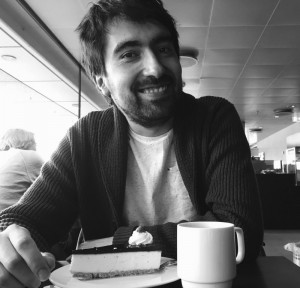 Together with Joona Taipale (University of Jyväskylä), I have co-edited a forthcoming volume that gathers eighteen contributions authored by some of the most prominent scholars in contemporary phenomenology. The volume, entitled “Phenomenology: 5 Questions”, is part of the 5 Questions Series, published by Automatic Press/VIP.
Together with Joona Taipale (University of Jyväskylä), I have co-edited a forthcoming volume that gathers eighteen contributions authored by some of the most prominent scholars in contemporary phenomenology. The volume, entitled “Phenomenology: 5 Questions”, is part of the 5 Questions Series, published by Automatic Press/VIP.
The contributors to the volume are: Renaud Barbaras, Rudolf Bernet, John B. Brough, David Carr, Steven Crowell, Françoise Dastur, Nicolas De Warren, John Drummond, Günter Figal, Shaun Gallagher, Miguel García-Baró, Sara Heinämaa, Nam-In Lee, Dermot Moran, Tetsuya Sakakibara, Anthony J. Steinbock, Bernhard Waldenfels, and Dan Zahavi.
THE BODY AND THE SELF, REVISITED
DECEMBER 10 – 11, 2015
COPENHAGEN
Organised by Adrian Alsmith.
This workshop celebrated the vicennial anniversary of Bermudez et al.’s landmark 1995 publication The Body and the Self (MIT, Bradford Books). Each presentation was a draft of a contribution to a forthcoming MIT Press collection, edited by Adrian Alsmith and Frédérique de Vignemont. The study of bodily experience and bodily self-awareness has blossomed considerably in the last two decades. The aim of the new collection – tentatively titled, The Body and the Self, Revisited – is to revisit the themes of The Body and the Self in light of new experimental evidence and advances in philosophical, neuroscientific and psychological theory.
 The life of a Ph.D. student (and academic workers in general) is not only about reading, writing and talking philosophy. There are other obligations as well – for example to go abroad to internationalize, to establish new contacts and get to know new and relevant research environments. For a couple months I have been in the process of planning a stay at UC, Berkeley in the fall semester 2016, which I am looking very much forward to. But I have been surprised about the amount of time it takes to plan and realize such a stay.
The life of a Ph.D. student (and academic workers in general) is not only about reading, writing and talking philosophy. There are other obligations as well – for example to go abroad to internationalize, to establish new contacts and get to know new and relevant research environments. For a couple months I have been in the process of planning a stay at UC, Berkeley in the fall semester 2016, which I am looking very much forward to. But I have been surprised about the amount of time it takes to plan and realize such a stay.
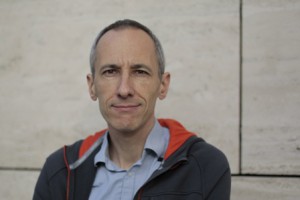
Proponents of speculative realism have recently subjected phenomenology to severe criticism. It has been accused of being a form of Zombie philosophy, of never really having existed, of never having amounted to anything at all. The main thinkers of the (non-existing) tradition have been criticized for their inconsistencies, for never explaining what precisely they are doing, for failing to deliver what they always promised, but never provided: a wholehearted endorsement of metaphysical realism. By contrast, speculative realism has been praised as the only position able to yield real metaphysical realism.
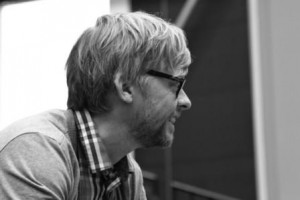 Most philosophers know how to philosophize – after all, they do it, and would not be philosophers if they didn’t. But philosophers typically do not say very much about how philosophy is to be done. Perhaps philosophical methodology – that is, explicit reflection on the methods of philosophizing – strikes most of us as being a less juicy topic than, say, consciousness or euthanasia.
Most philosophers know how to philosophize – after all, they do it, and would not be philosophers if they didn’t. But philosophers typically do not say very much about how philosophy is to be done. Perhaps philosophical methodology – that is, explicit reflection on the methods of philosophizing – strikes most of us as being a less juicy topic than, say, consciousness or euthanasia.
Some philosophers, indeed, think we shouldn’t be concerned with methodology at all. According to Gilbert Ryle, ‘preoccupation with questions about methods tends to distract us from prosecuting the methods themselves. We run, as a rule, worse, not better, if we think a lot about our feet’ (Ryle 2009: 331).
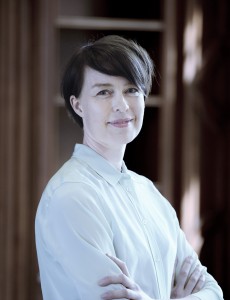 In his book Hallucinations, Oliver Sack leads us on a fascinating and informative journey through different kinds of misapprehensions of reality. Hallucinations are, Sacks tells us, “defined as percepts arising in the absence of any external reality—seeing things or hearing things that are not there” (Sacks 2012). He also refers to William James’ definition from Principles of Psychology which in the same straightforward manner reads: “An hallucination is a strictly sensational form of consciousness, as good and true a sensation as if there were a real object there. The object happens to be not there, that is all“ (1890, 116).
In his book Hallucinations, Oliver Sack leads us on a fascinating and informative journey through different kinds of misapprehensions of reality. Hallucinations are, Sacks tells us, “defined as percepts arising in the absence of any external reality—seeing things or hearing things that are not there” (Sacks 2012). He also refers to William James’ definition from Principles of Psychology which in the same straightforward manner reads: “An hallucination is a strictly sensational form of consciousness, as good and true a sensation as if there were a real object there. The object happens to be not there, that is all“ (1890, 116).
Read moreGry Ardal Printzlau / Sacks, Ferenczi and the sense of reality
 Kristian Moltke Martiny, Postdoctoral Research Fellow at CFS, just starting his research project
Kristian Moltke Martiny, Postdoctoral Research Fellow at CFS, just starting his research project
Purpose
The main question of my PhD dissertation was: how do we help persons living with the brain damage, cerebral palsy (CP)? This question is as complex and difficult to answer as any healthcare question. I argued that we need to ‘open up’ how we do (cognitive) science in order to understand what it means for persons to live with CP and then figure out how we should help them. Based on this method of open-minded cognitive science I used phenomenological interview to co-generate data on the neurophysiological, psychological and social aspects of living with CP.